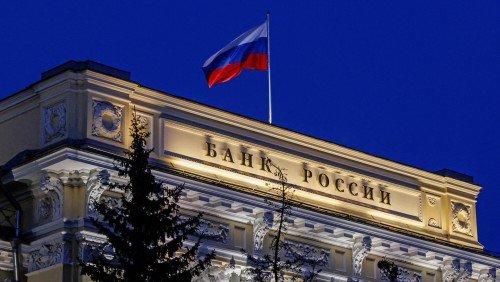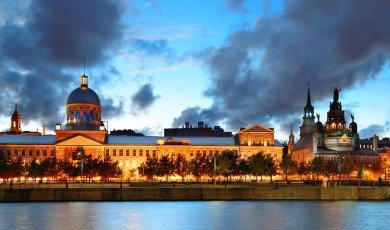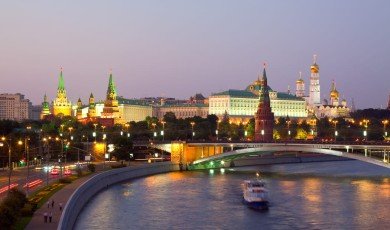
Russia is the largest country in the world by land area, and as such, its economy plays a significant role in global markets. Historically, Russia's economy has been heavily dependent on its natural resources, particularly oil and gas exports. However, in recent years, the country has made efforts to diversify its economy and reduce its reliance on these industries.
One of the biggest challenges facing Russia's economy is the impact of economic sanctions imposed by the United States and European Union in response to Russia's annexation of Crimea and its involvement in the conflict in eastern Ukraine. These sanctions have limited Russia's ability to access international markets and have had a negative effect on its economy.
Despite these challenges, Russia's economy has shown signs of resilience in recent years. In 2019, the country's GDP grew by 1.3%, driven by a strong performance in the services sector. However, the COVID-19 pandemic had a significant impact on Russia's economy in 2020, causing its GDP to contract by 3.1%.
In response to the pandemic, the Russian government implemented a range of measures to support the economy, including providing financial assistance to businesses and individuals, as well as reducing interest rates and implementing tax breaks. These measures have helped to mitigate the impact of the pandemic on the economy, although the country's recovery remains fragile.
In addition to the challenges posed by sanctions and the pandemic, Russia's economy also faces long-term structural challenges. One of the biggest of these is demographic decline, with the country's population projected to decline significantly in the coming decades. This poses a major challenge for Russia's economy, as a smaller workforce could limit the country's growth potential.
Russia's economy faces a range of challenges, including both short-term and long-term issues.
Some of the key challenges facing Russia's economy include:
-
Economic Sanctions: The United States and European Union have imposed economic sanctions on Russia in response to its annexation of Crimea and its involvement in the conflict in eastern Ukraine. These sanctions have limited Russia's access to international markets, and have had a negative impact on its economy.
-
Dependence on Oil and Gas: Russia's economy is heavily dependent on its oil and gas exports, which account for a significant portion of the country's GDP. This dependence on a single industry leaves the economy vulnerable to fluctuations in global oil prices.
-
Demographic Decline: Russia's population is projected to decline significantly in the coming decades. This poses a major challenge for Russia's economy, as a smaller workforce could limit the country's growth potential.
-
Corruption: Corruption remains a significant problem in Russia, with the country ranking poorly on measures of corruption and transparency. This can discourage foreign investment and limit the growth of the private sector.
-
Infrastructure: Russia's infrastructure is in need of significant investment and modernization, particularly in the areas of transportation, energy, and telecommunications. This can limit the country's ability to compete globally.
-
Brain Drain: Russia has experienced significant emigration of highly educated professionals in recent years, particularly in the fields of science and technology. This can limit the country's ability to innovate and develop new industries.
-
Dependence on Imports: Russia is heavily dependent on imports for a range of goods and services, including high-tech equipment and consumer goods. This can limit the country's ability to develop domestic industries and increase exports.
Overall, these challenges pose significant obstacles to Russia's economic growth and development. Addressing these issues will require a range of policy measures, including improving the business environment, reducing corruption, investing in infrastructure and education, and promoting innovation and entrepreneurship.
To address these challenges, the Russian government has launched a range of initiatives aimed at boosting economic growth and diversifying the economy. These include measures to improve the business environment, support innovation and technology, and promote exports to new markets.
In conclusion, Russia's economy faces a range of challenges, including the impact of sanctions, the COVID-19 pandemic, and long-term demographic decline. However, the country has shown resilience in the face of these challenges and has implemented a range of measures to support economic growth and diversification. As such, it remains an important player in global markets and will continue to be an important economy to watch in the years ahead.








